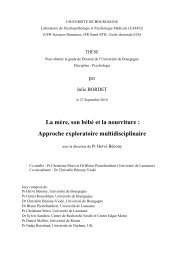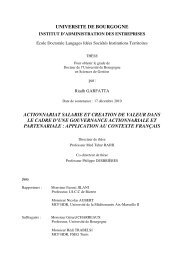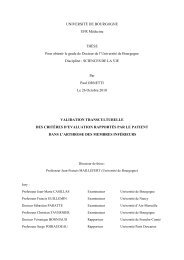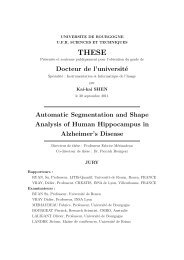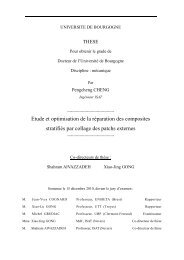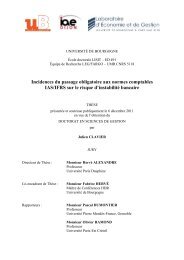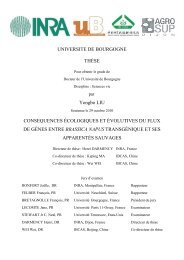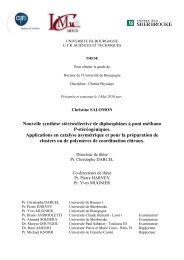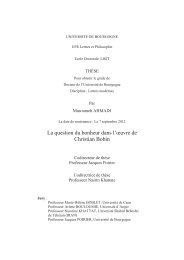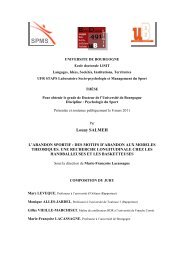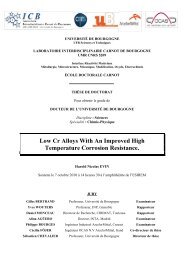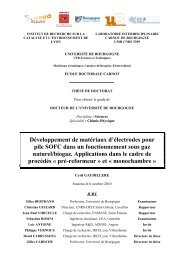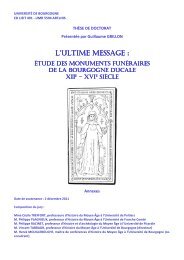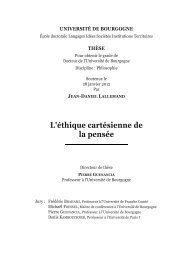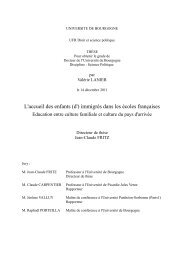Higher education in Asian countries and the role of international ...
Higher education in Asian countries and the role of international ...
Higher education in Asian countries and the role of international ...
You also want an ePaper? Increase the reach of your titles
YUMPU automatically turns print PDFs into web optimized ePapers that Google loves.
93<br />
general <strong>and</strong> <strong>of</strong> human knowledge, <strong>in</strong> particularly <strong>the</strong> development <strong>of</strong> <strong>the</strong> dissem<strong>in</strong>ation <strong>of</strong> <strong>the</strong><br />
sciences, letters <strong>and</strong> <strong>the</strong> arts. CICI was also responsible for creat<strong>in</strong>g a state <strong>of</strong> m<strong>in</strong>d conducive to<br />
<strong>the</strong> peaceful settlement <strong>of</strong> <strong>in</strong>ternational problems with<strong>in</strong> <strong>the</strong> framework <strong>of</strong> <strong>the</strong> League <strong>of</strong><br />
Nations.” S<strong>in</strong>ce its <strong>in</strong>ception CICI was faced with <strong>the</strong> problems like global peace <strong>in</strong>stability,<br />
absence <strong>of</strong> <strong>in</strong>ternational spirit, shattered <strong>education</strong> systems, non-conducive circumstances, <strong>and</strong><br />
scarcity <strong>of</strong> human <strong>and</strong> f<strong>in</strong>ancial resources. On 9 th August 1925 <strong>in</strong> response to an appeal by <strong>the</strong><br />
Assembly <strong>of</strong> <strong>the</strong> League <strong>of</strong> Nations <strong>the</strong> French government issued a law to establish an<br />
International Institute for Intellectual Co-operation (IICI) <strong>in</strong> Paris. This <strong>in</strong>stitute started function<br />
as an execut<strong>in</strong>g agency for CICI (UNESCO, 1946) International Institute <strong>of</strong> Intellectual Co-<br />
operation waged an effective campaign aga<strong>in</strong>st <strong>the</strong> obstacles that were faced by <strong>in</strong>tellectual life;<br />
provision <strong>of</strong> facilities for study travel, <strong>the</strong> draft<strong>in</strong>g <strong>of</strong> many bilateral <strong>in</strong>tellectual agreements, <strong>the</strong><br />
award <strong>of</strong> fellowships <strong>and</strong> study grants <strong>and</strong> <strong>the</strong> exchange <strong>of</strong> pr<strong>of</strong>essors <strong>and</strong> workers (Hajnal P. ,<br />
1983). Despite <strong>of</strong> <strong>the</strong>se barriers International Institution <strong>of</strong> Intellectual Co-operation (IICI)<br />
persuaded to achieve <strong>the</strong> objectives, from1940 <strong>and</strong> onward it was unable to cont<strong>in</strong>ue its activities<br />
due to fall <strong>of</strong> France. On 18 th December 1925 International Bureau <strong>of</strong> Education was established<br />
<strong>in</strong> Geneva as an <strong>in</strong>ternational non-governmental organization. It was concerned with <strong>the</strong><br />
comparative <strong>education</strong>, <strong>education</strong>al documentation <strong>and</strong> <strong>education</strong>al <strong>in</strong>novation. In 1929 IBE<br />
became an <strong>in</strong>tergovernmental organization <strong>and</strong> later on, it was <strong>in</strong>tegrated with UNESCO on 1 st<br />
January 1969.<br />
On 16 th November 1942 first meet<strong>in</strong>g or <strong>the</strong> Conference <strong>of</strong> Allied M<strong>in</strong>isters <strong>of</strong> Education<br />
(CAME) was convened by Richard A. Butler <strong>in</strong> London. In May 1943, dur<strong>in</strong>g <strong>the</strong> fourth session<br />
<strong>of</strong> CAME, a proposal for <strong>the</strong> creation <strong>of</strong> an <strong>in</strong>ternational organization for <strong>education</strong> came up. In<br />
<strong>the</strong> later meet<strong>in</strong>gs, gradually, this idea <strong>of</strong> such an organization fur<strong>the</strong>r crystallized (Hajnal P. ,<br />
1983).<br />
In October 1944 considerable progress was seen as CAME published a drafted a charter <strong>of</strong><br />
United Nations <strong>and</strong> <strong>in</strong> January1945 a committee constituted to study <strong>the</strong> possible relations<br />
between <strong>the</strong> proposed UNO, <strong>the</strong> Institution <strong>of</strong> Intellectual Co-operation <strong>and</strong> <strong>the</strong> International<br />
Bureau <strong>of</strong> Education <strong>in</strong> Geneva. On 24 th October 1945 at San Francisco USA, <strong>the</strong> newly adopted<br />
Charter <strong>of</strong> <strong>the</strong> United Nations came <strong>in</strong>to force henceforth <strong>the</strong> United Nations Organizations came<br />
<strong>in</strong>to existence. Article 57 <strong>of</strong> <strong>the</strong> Charter provided <strong>the</strong> grounds for <strong>the</strong> creation <strong>of</strong> a specialized<br />
agency concerned to <strong>education</strong> <strong>and</strong> culture, UNESCO. The Constitution <strong>of</strong> UNESCO, signed on



